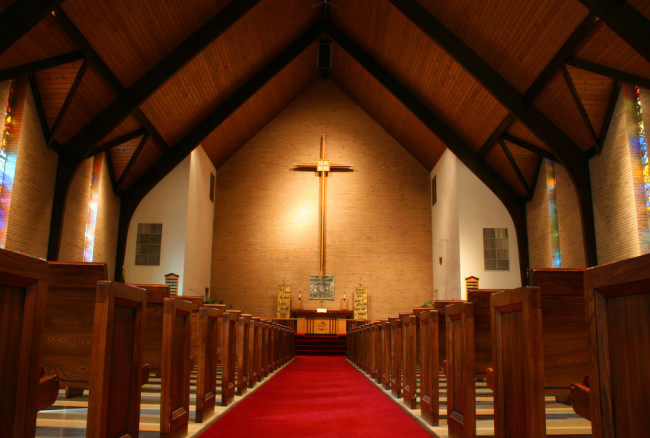4 strategies for breaking the hold of Sunday worship

Yet another change battle is under way in mainline Protestant churches: breaking the hold that Sunday worship has on staffing, budgeting, and overall priorities.
Below are four strategies for doing what needs to be done.
The battle lines are clear. Congregations routinely spend large portions of their budgets on providing Sunday worship. For this one morning a week, they allocate as much as 90% of their spending – staff time, facilities and volunteer support – not to mention the “opportunity cost” of doing this one thing at the expense of being able to do other things.
They do so in the belief that Sunday worship is the primary work of any congregation, and that the way to serve members – and to attract new members – is found in Sunday worship. That hasn’t been true for over five decades, and it certainly isn’t true today for people who want to know God but have no desire whatsoever to attend Sunday worship.
The dilemma, of course, is that older constituents cling to Sunday worship routines that meet their needs – social, as well as spiritual – and bristle at any suggestion of reallocating emphasis or of modifying the Sunday experience to reach broader and younger audiences. They believe that church exists to meet their needs. Who has ever told them otherwise?
Here are some strategies for moving to a healthier balance of ministries.
Leave the main, usually traditional, service alone, but add an alternative Sunday experience. Many congregations have added a contemporary service in a separate location, such as a parish hall or gymnasium, sometimes even off-site. Older members sometimes glare at young families seeking this family-friendly experience. But as long as their needs don’t get challenged, they eventually accept the parallel event. Allocating clergy time can be a challenge, especially when the parallel service begins to attract more and more people, as it will. Some churches try beaming the pastor’s sermon to multiple locations, some ask the pastor to alternate Sundays, some ask the pastor to run between two events, giving each its perceived due. In my opinion, this will be a temporary solution that buys some time.
Leave Sunday morning alone, but add alternative worship at other times of the week. Sunday evening works for some. Wednesday evening works for others. These events can be whatever seems to work and not bound by tradition. Weeknights are especially welcome to young families with children.
Leave Sunday morning alone, and add a new emphasis on small-group worship, such as house churches. Let them become the primary spiritual feeding for people not interested in the big Sunday service. This usually requires raising up a cadre of lay worship leaders, as well as designing worship experiences for home use. Congregations often find that people actually prefer the face-to-face intimacy of the small gathering. They are more likely to bring friends to the relaxed home church than to the often up-tight Sunday service.
Shift the focus away from worship as such. Christians are called to do many things, only one of which is worship. Many people find deeper spirituality in mission work, for example, or in small-group life centered in fellowship. They don’t need to do the singing, sacraments and liturgies of formal worship.
It is also possible simply to change Sunday worship to whatever leaders think will be more appealing to a larger audience. I don’t recommend this. It could be received as a betrayal by older members who have supported their congregation for years. It also fails to break the hold of Sunday worship. The new approach could become just as constricting as the former.
Clear communications will be critical whatever approach is taken. The pastor needs to explain why, say, an alternative service is needed, or why small groups matter. Some people, of course, will be too narrow-minded and selfish to accept any change that gets in their way. Leaders shouldn’t reward such attitudes. But it needn’t come to a showdown. Most people will go along with change if they understand it and if they believe they are being treated fairly.
The one course that should be ruled out is doing nothing. Churches are dying at a rapid rate, and the usual reason is their singular devotion to Sunday worship.
About the Author
Tom Ehrich is a writer, church consultant and Episcopal priest based in New York. He is the publisher of A Fresh Day online magazine, author of On a Journey and two national newspaper columns.

